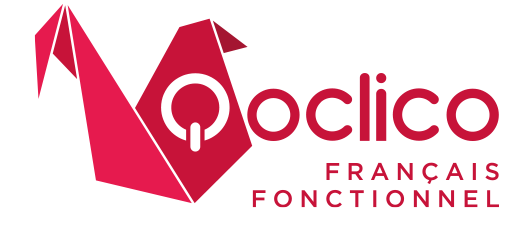It’s tough to learn French! So, what’s the secret?
French is a beautiful language, and one that a lot of us would no doubt wish to master. But to many, it often seems inaccessible. We start with the basics: Hello, How are you? My name is…, one two three four five; so far so good right? And then we try to go a little further only to get stuck on grammar. And as for pronunciation, let’s not even go there. For example, how many vowels are there in French? We’re told that there are 6 (a, e, i, o, u and y) and then we discover variants to them. Everything gets mixed up in our heads when ‘e’ can actually become, é, è, ê, ë, or when the pronunciation of the ‘o’ depends on its place in the word. And then we decide to add an ‘n’ to ‘a, e, i, o, o, u.’ Suddenly we have to use our nose to pronounce these very common sounds. And it gets more complicated with certain vowel combinations (ai, au, ou, oi, eu, eau) and even worse when they become nasal (ain, oin)! Oh la la. And then the knockout blow, the exceptions! When you have learnt the grammar rules and pronunciation rules and think you know them pretty well, you start to encounter so many exceptions that you get the impression that the French language is made of nothing else. It sounds tough right, but don’t give up yet!
Yes, the French language is full of exceptions but that’s perhaps what makes it exceptional, right? Don’t worry, you don’t need to know how to conjugate and pronounce well to make yourself understood. Learning a language requires small steps. And given the challenge of learning French, you can be proud of yourself even if, for now, you’ve only mastered the basics. In fact, to you we say, well done! And of course at Qoclico we encourage you to go further, because you can improve your French and become truly bilingual. But how, you may ask? How does one manage to have a fulfilling conversation in French? Or, how can one lead a meeting in French or write a quality work report in French? Well, let’s explore how, below.
Learning as an adult is often a challenge. As a child learner, we quickly develop automatisms, meaning we do not question everything and we accept (unconsciously) to learn step by step. We are not required to have an explanation for everything. As an adult learner, it’s different however. We often over think things, we want to understand why this word is written in such a way or why a particular rule applies. It is this perpetual reflection that sometimes induces self-created blockages in the language-learning process. Of course as an adult we are also self-consciously aware of our mistakes and fear being judgedfor them, so much so that we add to the challenge of learning the language, and to the difficulty of using the language.
As a starting point, we should bear in mind that there are of course different learning styles. Some people are more visual while others are more auditory, whereas kinaestheticlearners learn by doing, manipulating, and touching. We can be a little bit of all three, but we often have a dominant style. To learn well, it is important to know your learning stylewell and to identify how you remember things.
To support these different learning styles, Qoclico’s recipe for effective learning is:
BELIEF + REGULARITY + RESPONSIBILITY. Let’s discuss this further below.
First, you have to believe in your ability to learn French. Yes, it may seem obvious, but belief is the foundation of all learning. If you think you can’t do it, then you won’t. It would be a shame to miss your goal because of a lack of belief and conviction in yourself. Be convinced, believe and trust in your learning abilities. As an adult it may take a bit of getting used to learning again, but putting faith in your ability to learn is a big leap forward in the learning process. In addition to encouraging you throughout your learning journey, Qoclico offers Language Coaching sessions. This is a specific type of coaching to help learners overcome obstacles that give them the impression that they are stagnating and that they are no longer progressing. It also aims to help learners who are completely inhibited by their communication skills when using French. We then work together on the assumptions the learner has about him or herself and on the source of resistance that sometimes paralyses the language learner when using French. At Qoclico we say that you have to useyour French. After all, languages are tools, once you have them, you have to learn how to use them, and once you know how to use them, helped through belief, nothing can stop you on your language-learning journey!
The second important element in your approach to learning a language is perseverance and regularity. And, as you may agree, this applies to almost everything. If you want hard abs, you will need to do regular strength training exercises. If you do it from time to time or without a set rhythm, it will take you a long time to reach your goal, if you reach it at all. Similarly, if you take a long break in training, you quickly lose what you’ve gained. The same is true for learning a language. You have to set a learning pace or rhythm, and stick to it. That’s why Qoclico offers subscription-based courses. You choose the frequency and volume that suit you, that corresponds to the investment you wish to devote to this personal project, and you maintain it over several months or even years. Stick at it, set a regular rhythm, and persevere with regularity through your language-learning adventure!
The third and final component of Qoclico’s recipe for effective language learning is taking responsibility for your language-learning progression. You need to get motivated to learn French and to maintain that motivation. Once you are motivated by the idea of mastering the French language, that is, communicating in French with ease, you discover that you are the only one who can carry out this personal project. Qoclico can help teach you French, but it’s up to you to truly learn it. Nobody can learn it for you. In short, you are responsible for driving your personal learning process. That’s why Qoclico talks about ‘learning’ rather than simply referring to ‘French courses.’ Our teachers and tutors are ‘facilitators’ as they provide the language learner with the resources and structured methodology to learn. They facilitate understanding and assimilation of the language, they use techniques that are compatible with your learning style and guide you through your learning journey. But the one who does the real work… is you!
As you have read above, the Qoclico method is entirely learner-centred. At the end of the day, any success depends on the learner but Qoclico will be right there to support you along the learning journey. So, if French language learners harness a strong belief in their ability to learn French, if they persevere with regularity, and if they take responsibility for leading the learning journey, they will become fluent in French. And Qoclico will be the means to that end, accompanying you along the learning journey.
Anne-Sophie @Qoclico

